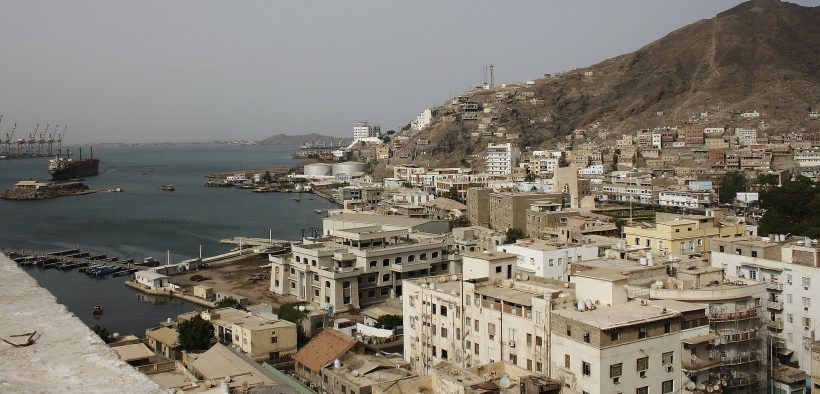Yemeni Rivals Reportedly Reach an Agreement, Deal to be Signed

Over the past month, Saudi Arabia, which has focused on fighting back the allegedly Iran-backed Houthi rebels, has been hosting indirect talks between Mansour and the STC.
Media reports suggested on Wednesday that the internationally recognized government of Yemen and the Yemeni separatist Southern Transition Council (STC), are to sign a deal on Thursday ending a power struggle in the southern Yemeni port oil-rich city of Aden.
The UAE-backed separatists had been linked with the Saudi-backed government of President Abd-Rabbu Mansour Hadi, yet the two parties were split in August after the separatists wrestled control over the southern port city of Aden.
Over the past month, Saudi Arabia, which has focused on fighting back the allegedly Iran-backed Houthi rebels, has been hosting indirect talks between Mansour and the STC.
In 2015, the well-armed Houthi rebels were able to oust the Hadi government from the capital San’aa, resulting in fighting between the separatists and Hadi’s forces, making UN efforts for peace in Yemen difficult.
No Date is Set
According to the SABA Yemeni News Agency, Rajeh Badi, spokesman for the Hadi’s government, said in a statement that no date has been set for the deal to be signed.
Another official, speaking in anonymity, said that talks are still going on, with no reference to any signing dates.
Saudi Arabia’s efforts for reconciliation between the two sides are said to be part of Saudi Arabia’s endeavor to defy the Houthis’ attempts to destabilize Saudi Arabia by means of their repeated strikes against Saudi cities, in which the Houthis used explosives-laden drones and missiles.
Meanwhile, a senior leader of the STC, Aidarous al-Zubaidi, said in a tweet that he was headed for Riyadh on Wednesday, apparently for joining current talks.
Items of the Deal
Part of the potential deal, the STC has reportedly sought self-rule in the southern Aden city, as well as a restructuring of the Yemeni armed forces under Saudi auspices, according to Reuters.
Last week, UAE armed forces withdrew from Aden and Saudi forces replaced them. The replacement is seen as a way to prepare for putting an end to the Hadi-STC rivalry over Aden.
Earlier, the Hadi’s government had reportedly asked the UAE to stop supporting the STC. Meanwhile, the UAE had repeatedly accused the Hadi government of being ineffective.
Over the past few years, Saudi Arabia has accused Iran of backing the Houthi militias. On Sept. 14, the Houthis claimed responsibility for striking the Saudi oil refinery company Aramco.
Later, the Houthis offered a ceasefire deal, in which the Houthis would stop targeting Saudi areas, while in return, the Saudis should cease all their military attacks on the Houthis within the Saudi-led military coalition for Yemen.
Riyadh responded positively to the offer but insisted that Iran is behind the Houthis’ attacks on Saudi territories. The Houthis denied such allegations, saying that the Aden standoff is mainly caused by the fact that Hadi’s government is unfit to rule in Yemen.
Once the STC-Hadi government deal is signed, the UN’s efforts for peace in the region could be boosted up for the best of millions of Yemenis, who are said to be on the brink of a significant humanitarian disaster.
Yemen Civil War
Fighting in Yemen began five years ago when Houthi rebels took control of large parts of the country, including the capital Sanaa, in late 2014. Mass protests and the Houthi rebel group forced the internationally recognized government of President Abdrabbuh Mansur Hadi from power in 2015. Hadi is now reportedly residing in Riyadh, Saudi Arabia.
The civil war has its roots in the 2011 Arab Spring, which led to a 2011 Yemen uprising that eventually forced the end of the 32-year-long regime of Yemen’s late president, Ali Abdullah Saleh. The uprising grew into a military conflict in 2014 and has since caused the death of thousands of people and the displacement of hundreds of thousands more.









